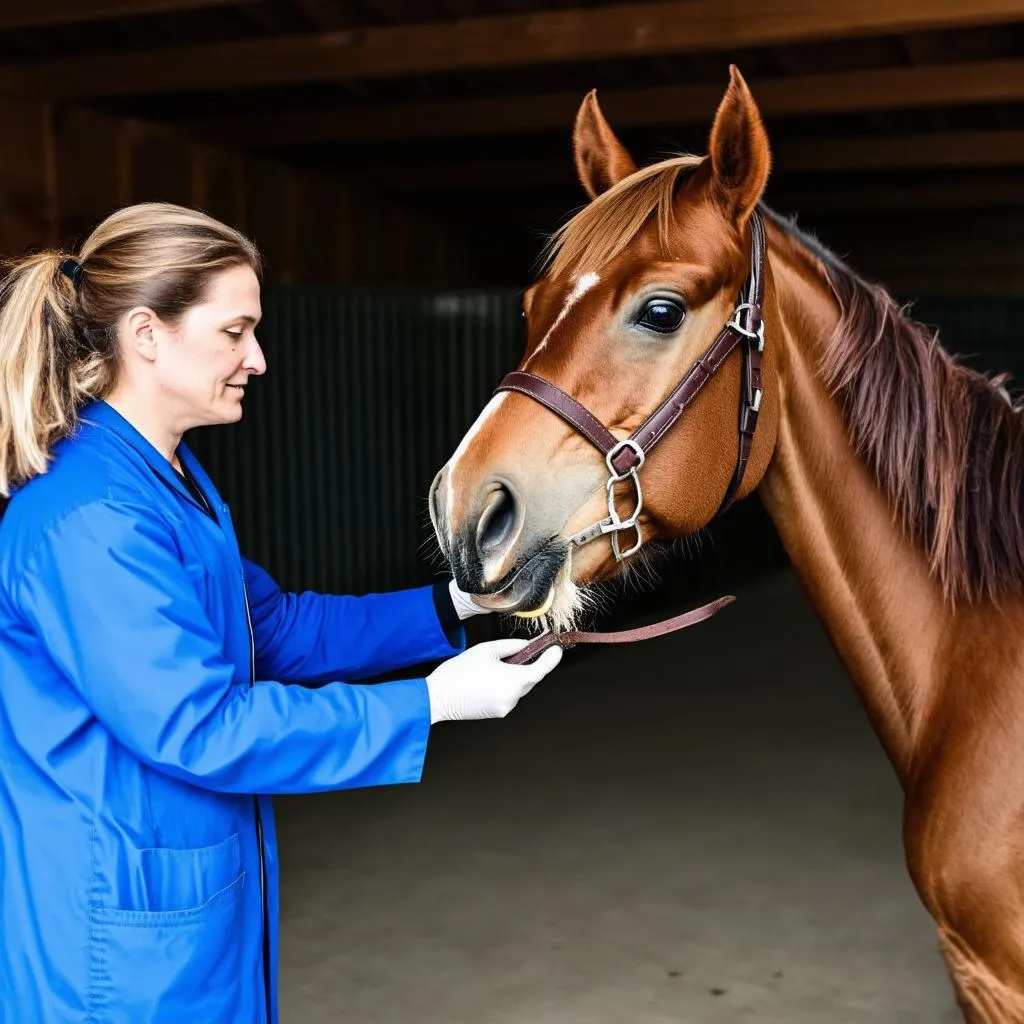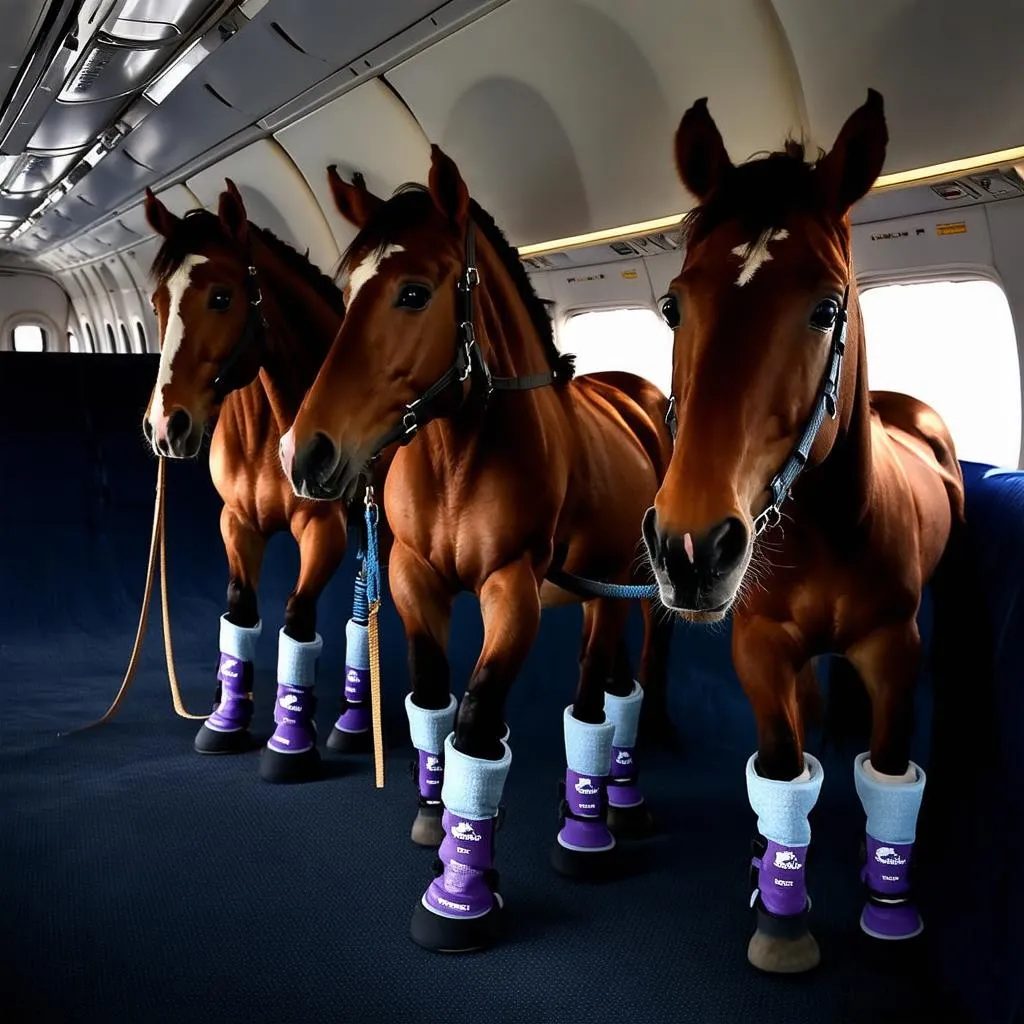Have you ever wondered how Olympic equestrian horses seamlessly travel from one continent to another? It’s a fascinating process that involves meticulous planning, specialized transport, and a deep understanding of equine well-being. Let’s delve into the world of international horse travel and uncover the secrets behind transporting these majestic athletes across the globe.
Preparing for the Journey: More Than Just a Stable Flight
Transporting a high-value equestrian horse is a complex operation, akin to a carefully orchestrated symphony. It’s a world away from packing your suitcase for a vacation!
Veterinary Checkups and Documentation: Ensuring a Clean Bill of Health
Before embarking on their journey, equestrian horses undergo rigorous veterinary checkups to ensure they are fit to fly. This includes:
- Health Assessments: Vets thoroughly examine the horse for any signs of illness or injury.
- Vaccinations and Treatments: Horses receive necessary vaccinations and treatments to comply with the destination country’s regulations.
- Travel Documents: A passport for a horse? Absolutely! These documents verify the horse’s identity, health status, and ownership.
 Equine Veterinary Check
Equine Veterinary Check
Specialized Training: Acclimating to Air Travel
Some horses may require specialized training to acclimate them to the sights, sounds, and sensations associated with air travel. This can involve:
- Mock Stalls: Horses are introduced to stalls similar to those used in aircraft, helping them adjust to the confined space.
- Noise Desensitization: Horses are gradually exposed to aircraft noises to minimize stress during the actual flight.
Modes of Transportation: Choosing the Right Option
When it comes to international horse transport, there are two primary methods: air and sea.
Air Travel: The Preferred Choice for Speed and Efficiency
Air travel is the most common mode of transport for equestrian horses, especially for long distances. Specialized airlines or charter flights cater specifically to livestock transportation, offering:
- Climate-Controlled Cargo Holds: These holds maintain optimal temperature and humidity levels, ensuring the horses’ comfort throughout the journey.
- Experienced Handlers: Professional handlers accompany the horses, providing care, monitoring their well-being, and ensuring their safety during the flight.
 Horses on Airplane
Horses on Airplane
Sea Travel: A More Economical, But Time-Consuming Option
Sea travel is a more budget-friendly option, but it is significantly slower than air travel. Horses are transported in specially designed containers on cargo ships. While sea travel may be suitable for shorter distances, it’s essential to consider the prolonged journey time and potential for sea sickness in horses.
Arriving at the Destination: A Smooth Transition
Upon arrival at their destination, the horses undergo customs clearance and further veterinary inspections to ensure compliance with local regulations. They are then transported to their designated stables, where they can rest, recuperate, and acclimate to their new surroundings.
FAQs: Your Questions Answered
Q: How much does it cost to transport an equestrian horse overseas?
A: The cost varies depending on factors such as the distance, mode of transport, and destination country. On average, you can expect to pay anywhere from a few thousand dollars for short-haul flights to tens of thousands for long-haul journeys involving specialized care and handling.
Q: Are horses sedated during transport?
A: While sedation was once a common practice, it’s now generally avoided unless absolutely necessary. Modern transportation methods and experienced handlers prioritize keeping the horses calm and comfortable without the need for sedation.
Conclusion
The international transportation of equestrian horses is a meticulously planned and executed process that prioritizes the well-being of these incredible animals. By understanding the steps involved and the options available, horse owners can ensure their equine companions enjoy a safe and comfortable journey, no matter where in the world their competitions may take them.
For more insights into the world of equestrian travel and other fascinating aspects of the horse world, visit travelcar.edu.vn.